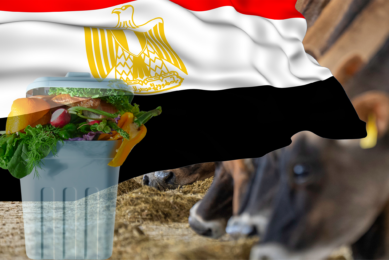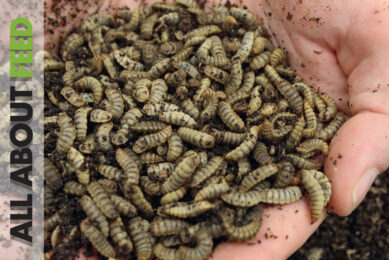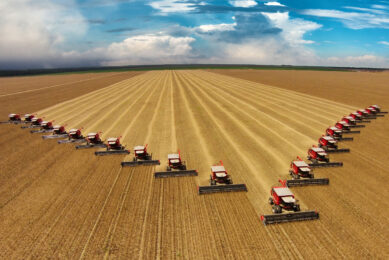Cereal farmers piloting alternative methods of natural capital funding

Crop production company Frontier Agriculture is exploring an alternative method of natural capital funding, designed to help both farmers and consumer organisations meet sustainability goals.
The initiative is designed to allow all parties to contribute to more resilient supply networks through improvements to natural capital assets, such as soil, water, farm biodiversity and carbon management.
Frontier’s lead on sustainability, Jim Stotzka, said buyers were increasingly looking to enhance their sustainability credentials to meet concerns about food production models, but this impacts the whole supply chain, including growers. Arable farmers are also having to meet new crop production protocols in consumer contracts and meet new agri-environment policies and publicly funded schemes.
“That’s a lot of pressure at the farm gate, but having more sustainable food production systems is the goal for the whole supply chain, so why not work together? We’re excited to have the pilot in place so we can develop it with the input of our farmers and consumer partners,” said Stotzka.
Growers involved are obtaining funding as part of their supply chain agreement to increase the biodiversity on their farms or take on practices which result in carbon reduction and sequestration.
“Our role in the supply chain and our end-to-end services means we can connect individual growers to large consumers and help facilitate these relationships, encouraging a more collaborative approach to sustainability on farms,” he added.
Pilot
The first phase of the pilot has been put into practice with a small group of growers in the North and North East of England who are supplying feed to Cargill’s SeaFurther aquaculture programme.
Dave Robb, Cargill programme lead, said the aim of the SeaFurther initiative was to support salmon and trout farmers to reduce their carbon footprint, but this needed to take place across the supply chain: “One crucial area where we can reduce emissions is by ensuing the use of sustainably produced, nutritional feed.”
Much of the raw material required for aquaculture feed comes from cereals and oilseeds grown in the UK, with wheat gluten being a valuable high protein ingredient. With a requirement for greater sustainability in the supply chain many feed growers must ensure their crops are grown within specific protocols, designed to meet production specifications, while also safeguarding the environment.
The growers can implement a range of sustainable practices, including:
Reduced tillage
Use of variable rate nitrogen and urease inhibitors and incorporating cover crops
Beneficial/pollinator strops and companion crops
There is crossover in that each approach ultimately helps to improve soil health, reduce emissions and sequester carbon, protect water sources and aid biodiversity, as well as reduce farm business risk and increase overall crop resilience.
Participating farmers can submit a range of evidence depending on the practices/measures they implement including photos, receipts and carbon scoring, as well as NDVI imagery and ground-truthing with help from their agronomist.
A farmers experience
One farmer participating in the scheme, Alan Petch, has been keen to take part because of its focus on commercial sustainability. Petch, who farms at Winley Hill, Great Ayton, Middlesborough, said: “For me, sustainable farming is more than linking specific acts of “reduction” to the land. Regenerative and sustainable practices must be commercially viable too – we must look at them with production in mind.
Petch and his Frontier agronomist, Andy Roy, have worked closely for several years to make more strategic agronomic decisions – for example, growing wheat through direct drilling and non-inversion tillage, trying to reduce fuel use and moving to liquid fertiliser to optimise applications.
He also feels it has the potential to work with the other supply chains and believes it could open more doors and opportunities. For example, through trials with Frontier and Kings Crops, he’s been exploring the use of companion crops alongside spring beans to reduce reliance on insecticides to control pea and bean weevil.
“I don’t have a marketplace for the bean crop yet as I’m using it as more of a rotational tool to fix nitrogen and aid grassweed control, but this initiative from Frontier, if it grows, could have the potential to link me to a marketplace for sustainable home-grown feed protein in the future and that’s really positive,” he added.











